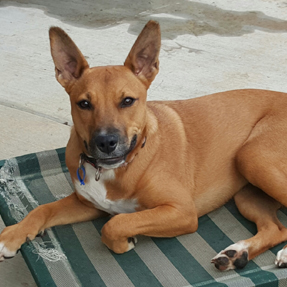Decorations, Christmas trees and gift wrapping can pose risks to our pets. Here are some helpful tips to make sure yours don't get into a spot of bother this festive season:
• Ensure your Christmas tree is stable and secure! They can topple over and hurt our pets. Pets may be tempted to play with them, chew on them and our feline friends are fond of playing with dangling ornaments.
• Consider what decorations you’re using on your tree and the materials of gifts below it. Kitties may get ambitious and rip presents early, dogs may sniff out wrapped up chocolate and cats may try to climb your tree, munch on ornaments and get tangled in Christmas lights. Dogs may also ingest ornaments, so keep these out of reach and leave a bare area around the base of your tree free from pretties if your pet is prone to be inquisitive!• If you have a real Christmas tree, prevent your pets from drinking out of the tree water bowl. It may contain preservatives which are dangerous and if the water sits there for any length of time, harmful bacteria may built up in it.
Simply monitoring your pets and their interactions with decorations and trees can save you an expensive trip to the vet!
The holiday period usually means more visitors, which may increase the risk of doors and gates being left open. Sadly it is a time of the year when our animal friends may get lost. Here are some tips to keep your pets safe and reunited quickly should they go missing:
• Ensure your pet has identification on their collar as well as an up to date microchip that is registered. You can check your pet’s microchip status here.
• If you lose or find a pet you can find out who to contact and what to do next here.
Added activity in your home can also cause your pet to fret. What should you do?
• If you think your dog may be overwhelmed with lots of new people, give them time away from the action and offer a yummy chew or filled enrichment toy.
• Do you have a crate or suitable area for your dog to wind down? Even the most social of dogs will need a break from the activity.
• Assign an adult (not involved in supervising children) to be in charge of your dog if you can’t be – being sure they look out for signs of stress.
• Do not allow children to hug or kiss your dog. Dogs do not like hugs and kisses! Even a dog who tolerates this under normal circumstances, may not tolerate this from strangers.
Christmas means more food and treats. Here are some foods to avoid that are toxic to dogs and cats: cooked bones, onions, garlic, sauces, chocolate, caffeine, nuts, avocado, raisins, sultanas (including Christmas cake), fatty and preserved meats. View more foods to avoid here. If in doubt, keep your pet on their usual diet to avoid them turning into a Christmas Pud themselves, and unexpected trips to the vet!









